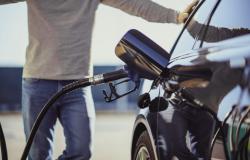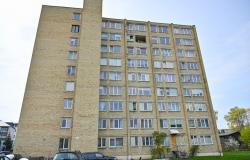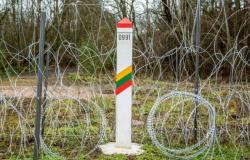
The creation of such renewable energy communities is foreseen in the National Energy Independence Strategy (NENS) presented by Energy Minister Dainius Kreivis on Wednesday.
According to the Deputy Minister of Energy Inga Žilienė, energy communities created by residents would contribute to the reduction of energy poverty and the development of green electricity, as residents could produce it themselves.
For this purpose, the ministry plans to present amendments to the laws in the autumn session of the Seimas, which would establish the principles of electricity sharing, the possibility of trading electricity, and provide financial support that would encourage residents to establish such energy communities.
Renewable energy communities can only produce green energy
According to I. Žilienė, renewable resource energy associations (AIEB) established by residents have the right to build electricity or heat generating facilities, can supply the produced electricity to common networks with the right of priority and sell it to members of other associations.
AIEB status is granted to non-profit organizations whose members live in the county where the power plant is being built.
“Geographic restrictions are set for associations, members of the association cannot be scattered throughout the territory of Lithuania,” the vice-minister emphasized.
The income from the sold electricity would be allocated to the community’s educational, cultural activities, social and sustainability projects.
Citizens’ energy associations can also produce energy from fossil fuels
According to I. Žilienė, citizens’ energy associations (PEBs) have the right to produce electricity from all energy sources, not only renewable energy, as well as to store the produced electricity in batteries, to provide electric car charging services for members.
PEB shareholders can be natural or legal persons, but only natural persons, small companies or municipal councils have the right to make decisions.
“Since the role of municipalities is particularly relevant in promoting community energy, since they also have more competences and administrative abilities, they can help those communities to establish themselves.
You can also organize the activity itself, if you have to share electricity”, emphasized I. Žilienė. The establishment of such associations is not subject to geographical restrictions. In order to establish any type of energy society, according to the vice-minister, an application must be submitted to the State Energy Regulatory Council (VERT).
“To date, four permits have been issued for renewable resource energy associations and eight permits for PEB,” said I. Žilienė.
Currently, the Lithuanian Energy Agency (LEA) has announced the provision of almost 64 million EUR financing, which is intended to cover part of the costs incurred by communities for the installation of solar power plants with a capacity of up to 500 kW (kilowatts).
According to LEA head Agnė Bagočiūtė, the agency is committed to distributing this amount to the European Commission (EC) until May 31, 2026.
For it, 220 MW (megawatts) of new power generation capacity from renewable resources will have to be created in Lithuania.
Tags: Residents encouraged create energy communities produce part required electricity
-




